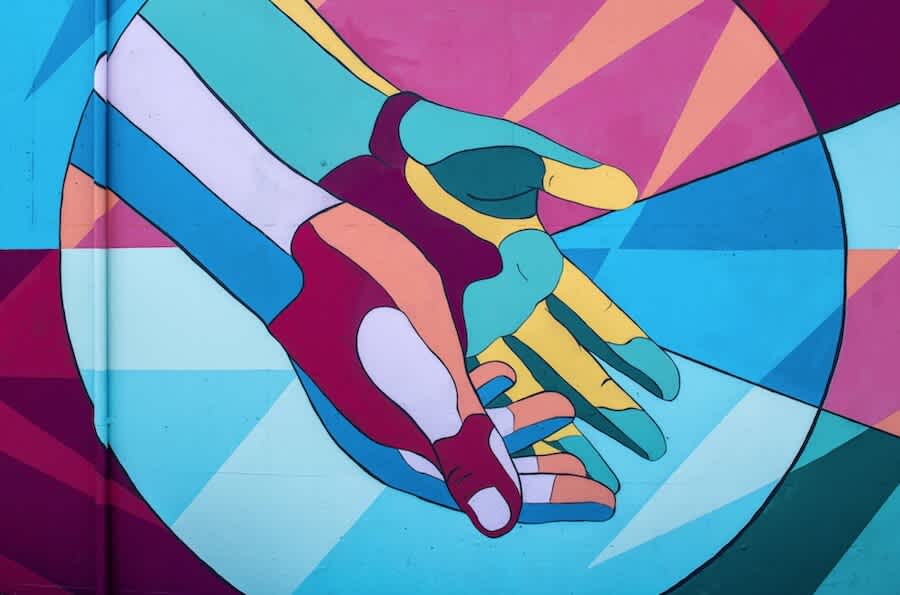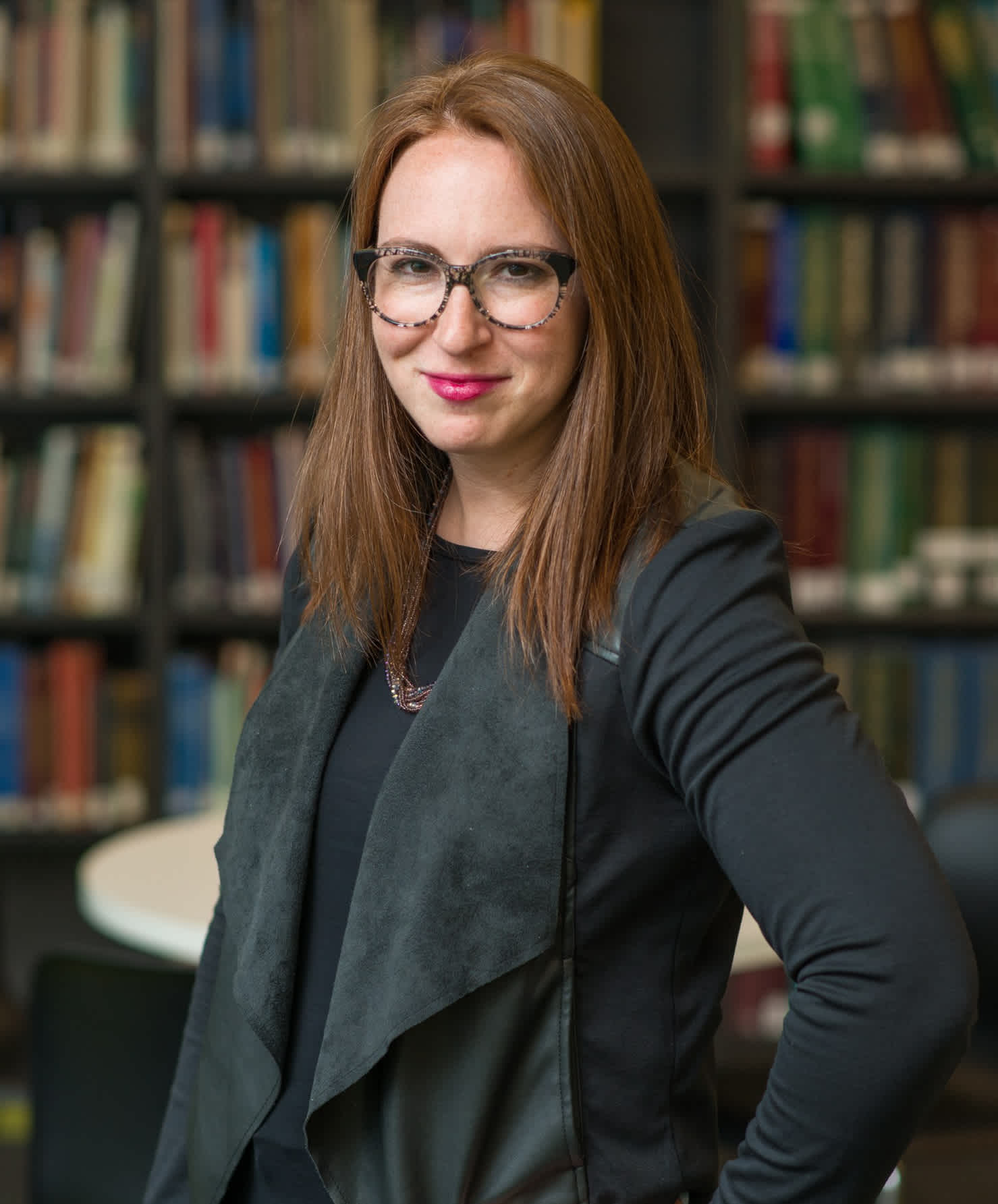Grantmaking Trends & Insight from 8 Experts [Innovative Giving Part 1]
Revisit key takeaways from 2020 and discover grantmaking trends for 2021 with eight philanthropic thought leaders.

Last Updated May 28, 2025
The first in a two-part series
It’s no overstatement to say that 2020 transformed the landscape of giving radically, thoroughly, and irreversibly. The COVID-19 pandemic and movements for racial equity spurred landmark change in the philanthropic sector, change that will impact grant funding and grantmaking trends in 2021 (and for years to come).
The Submittable team saw firsthand how established funders increased funding, scope, and capacity for their programs, while new funders emerged in response to unprecedented need (check out data on their great work here and selected customer profiles here). At the end of last year, we reached out to eight philanthropy experts for insight into what occurred in 2020, what’s on the horizon in 2021, and how grantmakers can prioritize and strategize for longevity and impact.
Special thanks to the following experts in grantmaking for their generosity and time: Edgar Villanueva, Jennifer Laszlo Mizrahi, Aaron Dorfman, Yolanda Coentro, Sam Caplan, Kris Putnam-Walkerly, Jen Bokoff, and Adam Liebling.
We hope their insights into key learning and grantmaking trends will help your organization succeed in the new year. And check out the second installment in this series: “Innovative Giving Part 2: Best Practices in Philanthropy from 8 Experts.”
Edgar Villanueva

Edgar Villanueva is a racial justice activist, philanthropist, and author of Decolonizing Wealth. He is Principal at Liberated Capital and the Decolonizing Wealth Project, and Chair of the Board of Directors of Native Americans in Philanthropy.
I think there was more willingness in 2020 to trust community-based organizations led by people of color to deploy capital in a way that foundations are often ill-equipped to do.
In addition to noting a marked increase to the speed of grantmaking during 2020, Villanueva points out significant shifts in awareness and in how grant funding was distributed.
“A lot of the predisposed ideology that’s been held up in philanthropy around ideas of capacity and worthiness really got questioned with the Movement for Black Lives and seeing the racial disparities around how COVID-19 was impacting communities. I think there was more willingness in 2020 to trust community-based organizations led by people of color to deploy capital in a way that foundations are often ill-equipped to do.”
“We also saw an increase in community mutual aid that has been a tradition of giving for a long time in Black and Indigenous communities. People used different mechanisms for moving funding and getting direct cash to people, including things like Go Fund Me and other types of platforms,” he says.
Villanueva’s participatory grant-making fund, Liberated Capital (part of his Decolonizing Wealth Project), was part of this push for non-traditional payouts.
“At Liberated Capital in 2020, we moved over a million dollars in direct cash payments to 2,000 Native American individuals who were impacted by COVID-19, which was a very different kind of funding that I didn’t have a lot of experience around being a traditional grantmaker for so long.”
I think we could continue to see an ongoing shift in 2021 toward democratization in philanthropy.
Going forward, Villanueva is hopeful funders will retain the nimbleness and community-centric practices that emerged in response to 2020. In 2021, he also believes grantmakers must continue to focus on racial justice, democratization, and healing.
“I hope the priority and awareness around racial justice will continue to be there in 2021, understanding that white supremacy has facilitated so much of the injustice that philanthropists and donors care about. I think we could continue to see an ongoing shift in 2021 toward democratization in philanthropy.”
“We’re still seeing major applause for big donors making headlines but I think that philanthropy situated around and led by community is going to continue to grow—like giving circles and grassroots fundraising efforts, I see that grantmaking trend continuing to emerge,” he says.
Jennifer Laszlo Mizrahi

Jennifer Laszlo Mizrahi, who is dyslexic and has ADHD, is co-founder of the Mizrahi Family Charitable Fund (a Donor Assisted Fund under Vanguard) and president of RespectAbility, a diverse disability-led nonprofit that fights stigmas and advances opportunities for people with disabilities.
Sadly, while many philanthropists and organizations were super heroes, we did not do enough to stop failed public policies which caused a lot of people to die needlessly.
While Mizrahi commends certain moves made by philanthropy in 2020, she points out where funders missed the mark and need to reprioritize for 2021.
“In 2020, funders tended to focus on existing grantees whose work, in many cases, was less central to the immediate crisis. While many of these groups had ongoing funding streams and enough professionalization that they could get PPP funds, it was harder to get funding for new emerging needs.”
“Additionally, given that the government injected trillions of dollars into addressing the crisis, far too little was spent by philanthropy to help educate public leaders on how to fix problems. Sadly, while many philanthropists and organizations were super heroes, we did not do enough to stop failed public policies which caused a lot of people to die needlessly,” Mizrahi says.
The disparate impact of the public health and economic crises on marginalized communities should remain and will remain a focus of grantmaking in 2021.
Mizrahi appreciates that many funders sought to mitigate the disproportionate effects of the pandemic on vulnerable communities in 2020 and will continue to do so in 2021.
“The COVID-19 pandemic and the resulting economic shock laid bare the inequalities in our economy and our country. The disparate impact of the public health and economic crises on marginalized communities should remain and will remain a focus of grantmaking in 2021.”
Mizrahi predicts greater efforts by funders in 2021 to support groups that are proximate to the problems they are trying to solve, drawing on important shifts in this regard during 2020.
“People who have experienced problems first-hand often know the solutions which are best able to create positive systems change and outcomes. In the future, smart funders will invest more in civic engagement so that future leaders can understand both the needs of the communities they serve and the best solutions to meet them.”
Still, while gains were made in this regard, Mizrahi notes that the disability community continues to be underserved.
“The largest new gifts in the disabilities sector, made by Mackenzie Scott in 2020, went to groups where almost no people with disabilities serve on their boards or senior staff. People working in philanthropy often don’t know what they don’t know about disability issues and how important it is to support diverse disability-led groups as well.”

Aaron Dorfman

Aaron Dorfman is president and CEO of the National Committee for Responsive Philanthropy (NCRP), an organization that promotes philanthropic accountability, effectiveness, and responsiveness to the needs of marginalized communities.
We saw funders, for example, that usually hold very closely to the minimum 5% go above that, some closer to 10% for payouts in 2020 and 2021.
Dorfman, a prominent speaker and writer who joined NCRP after fifteen years as a community organizer, observes that greater spending by funders in 2020, as well as larger investment in movements for change and increased commitment to general operating support, will continue to influence 2021.
“In 2020, we saw increasing numbers of philanthropies and high net worth donors investing in grassroots movements working to transform society, a topic I explored on the NCRP website. We also witnessed a greater stated commitment to unrestricted general operating support, although we don’t yet have evidence that funders actually followed through. We need a little bit more time to be able to analyze that.”
“Last year, we saw a good number of foundations increase their grant spending over what they had previously planned. We saw funders, for example, that usually hold very closely to the minimum 5% go above that, some closer to 10% for payouts in 2020 and 2021,” Dorfamn says.
“Smaller, more progressive funders led the charge, including The Libra Foundation, Wallace Global Fund, and the General Service Foundation. Then you had larger foundations come along later in the year, most notably the Ford Foundation with its $1 billion social bond.”
I think it would be a mistake to think we don’t need to fund movements with a new administration in place.
According to Dorfman, in 2021, funding spurred by 2020 will yield further dividends.
“Changes funders made in 2020 will allow supported groups to begin to reap benefits. Groups that received significant new funding didn’t spend it all in 2020, so they’re going to be able to carry that over into 2021.”
Dorfman believes unrestricted support will continue to play a huge role, as the realities of daily life—including the pandemic, opportunities to advance racial justice, and politics—continue to shift.
“I think it would be a mistake to think we don’t need to fund movements with a new administration in place. In order to create the conditions where an ally can get something done, you’ve got to keep the pressure up in terms of the organizing and grassroots activism. So I hope that funders will continue to support that throughout 2021 and even into 2022.”
Yolanda Coentro

Yolanda Coentro is the President and CEO of the Institute for Nonprofit Practice (INP), a nonprofit organization that is working to advance equity and social change by equipping the most promising social sector leaders with the skills, confidence, and resources they need to make their organizations effective, innovative, and sustainable. Coentro has been repeatedly recognized as a leader and influencer in philanthropy, especially for her work around DEI.
I’m concerned that this intense feeling of connection to a common cause will fade if we don’t amplify the importance of shifting power and financial capital into the hands of those most impacted by injustice.
According to Coentro, grantmakers made important realizations in 2020, especially around the importance of responsive speed, trust-based principles (and the removal of barriers), and equity.
“Allowing organizations to use funding as they deem most appropriate has proven to be essential in order to respond to changing circumstances and ensure organizational strength and effectiveness. More and more, funders are evaluating where their money is going and examining the disparities between investments in BIPOC-led organizations and white-led organizations and the resulting impacts on communities of color whose organizations are left under-funded.”
While increased conversation around multi-year, general operating funds is positive, Coentro wonders about grantmakers’ ongoing tenacity in this regard during 2021.
“There is a real question as to whether these shifts in practice will be here to stay or whether funders will slip back into ‘business as usual,’ with more funding parameters and restrictions. I’m concerned that this intense feeling of connection to a common cause will fade if we don’t amplify the importance of shifting power and financial capital into the hands of those most impacted by injustice.”
Overall, Coentro is optimistic about continued procedural improvements as a grantmaking trend in 2021, spurred on by collective learning across the field.
In 2021, I hope those who have the ability to make big bets, either individually or through a funding coalition, will do so in support of social change work where community, collaboration, and collective action are paramount.
“Many progressive foundations and philanthropists are building on momentum from 2020 with their peer organizations. That collective learning and community support of new practices will be critical to maintaining and expanding on the progress we are seeing in philanthropy.”
Coentro is hopeful that funders will continue to recognize how shifts in practice can advance their missions, decrease their administrative burdens and costs, and more meaningfully connect them to the organizations they support. She also underscores the continuing importance of social justice and DEI, which includes shifting power and ensuring communities affected by injustice have real access to financial capital.
“In 2021, I hope those who have the ability to make big bets, either individually or through a funding coalition, will do so in support of social change work where community, collaboration, and collective action are paramount. I hope that funders will continue to prioritize racial equity in their strategies and in their practices.”
Sam Caplan

Sam Caplan is the CEO and Founder of New Spark Strategy, a technology consulting and strategic planning firm for philanthropy. Before launching New Spark Strategy, Caplan held leadership roles at multiple foundations and in grant management technology.
The events of 2020 forced a sudden realization among grantmakers that they had to change their grantmaking philosophy as well as their operational work processes.
According to his observations, 2020 spurred changes to both grantmaking philosophy and operations that will continue to impact the sector in 2021.
“Philanthropy has been mired in its own really complex burdensome work processes for decades now. The events of 2020 forced a sudden realization among grantmakers that they had to change their grantmaking philosophy as well as their operational work processes.”
“This led to a lot of re-engineering and I think it helped foundations realize that they can simplify their grant making. Funders can speed grants up, they can make them more equitable, they can remove that grantee burden and administrative burden,” Caplan says. “I think we will look back on 2020 for a long time to come as a year that forced many foundations to make some much-needed process changes that benefits their nonprofit partners in a lot of ways.”
In addition to continued simplification of operations, Caplan notes the need for funders to move money fast (and digitally). He also emphasizes the ever-growing importance of trust-based philanthropy as a grantmaking trend for 2021—including practices that can help nonprofits to strengthen their digital infrastructure.
Bigger grants for general operating expenses will offer a huge benefit to nonprofits, enabling them to use grant money more effectively and, hopefully, to bolster their own digital infrastructure.
“Trust-based philanthropy gained a lot of steam in 2020, both due to re-engineering that occurred as a result of COVID-19 and also because of the BLM movement. I think going forward, we’ll start to see grantmaking transition from being this sort of varied administrative process to being more of a trust-based process. Bigger grants for general operating expenses will offer a huge benefit to nonprofits, enabling them to use grant money more effectively and, hopefully, to bolster their own digital infrastructure.”
“Typically, it’s challenging for nonprofits to invest in digital infrastructure because most grants don’t specify that they’re allowed to use the dollars in that way, or a small percentage of the grant may be allowed for that, but not enough to really enable nonprofits to take advantage of technology. So from my perspective, I think that’s going to be a fantastic sort of evolution in 2021,” Caplan says.
Looking to streamline your grantmaking process?
Submittable simplifies even robust grant review processes to save you time.
Kris Putnam-Walkerly

Kris Putnam-Walkerly is global philanthropy expert and advisor with over 20 years experience. She is the author of Delusional Altruism and has been named one of American’s Top 25 Philanthropy Speakers.
This whole notion of getting back to where we were doesn't exist. Disruption and volatility are the status quo.
According to Putnam-Walkerly, the events of 2020 increased the speed of giving, while improving the ease of giving (and applying for) grants.
“So many funders have held onto tight practices and policies and expectations for so long—nothing like a major crisis to make you realize how silly some of them are.”
Putnam-Walkerly cites many examples of groups getting money out the door with amazing speed and dramatically reduced oversight, including Moses Taylor Foundation, Robert Sterling Clark Foundation, and the Greater Cleveland Covid-19 Response Fund. She further commends the move in 2020 toward offering more core operating support.
“There is new recognition around trusting the nonprofit leader to know what’s going on and what’s needed and allowing them to make real time adjustments.”
She also points to new awareness and focus on racial justice and racial equity, noting that more abundant resources are available to support this, built on groundwork laid by groups like Policy Link with a long-standing focus on these issues.
“There’s so many more resources today compared to five years ago to help philanthropy address racial justice and racial equity issues. And after 2020, there’s a lot more readiness and awareness and understanding among funders.”
In 2021, Putnam-Walkerly urges grantmakers to avoid the strong pull towards “getting back to normal.”
The crisis has made it abundantly apparent that we can't afford to spend a year on strategic planning because by the time you've created your plan, the world will have changed.
“You know, there is no ‘new normal’ because there really never was a normal. So this whole notion of getting back to where we were doesn’t exist. Disruption and volatility are the status quo.”
According to Putnam-Walkerly, strategy has emerged in 2021 as being especially important as a grantmaking trend for three reasons.
“First, I think any organization going into the crisis that had clarity on its strategy and its priorities fared better because they had a framework in which to make decisions and adjustments. Secondly, no strategy that existed before this crisis could possibly remain intact—pull out that strategic plan and see what still makes sense and what needs to be added, abandoned, and tweaked.”
“Lastly, the crisis has made it abundantly apparent that we can’t afford to spend a year on strategic planning because by the time you’ve created your plan, the world will have changed. Rapid strategy development, with the assumption that you’ll have to course correct along the way, is the best approach,” she says.
Jen Bokoff

Jen Bokoff is Director of Development at the Disability Rights Fund and Disability Rights Advocacy Fund. She is also an activist, consultant, public speaker, volunteerism devotee, and philanthropy professional with extensive experience in the grants space, including over seven years at Candid.
I’ve seen many foundations ‘refocusing priorities’ and developing new strategies to be responsive in the moment, which has led to poor exits from funding other organizations and issues, and amplified questions of power imbalances.
Bokoff notes progress in 2020 around trust-based practices, racial equity, and participatory grantmaking, with a few caveats.
“The pandemic led to increased calls to action around funders being better funders, including long-time asks like unrestricted support and less red tape—pledged in the widely-signed Council on Foundations pledge—and also more grant programs and funding specifically to Black-led and serving work (the Fund for Black-led Change at the Meyer Foundation is a good example).”
“There have also been several new participatory grantmaking efforts emerging reflecting #ShiftThePower philanthropy practices. I paid particular attention to the Global Resilience Fund by Purposeful, which led with inclusivity and intersectionality,” Bokoff says.
“One downside of the pandemic: I’ve seen many foundations ‘refocusing priorities’ and developing new strategies to be responsive in the moment, which has led to poor exits from funding other organizations and issues, and amplified questions of power imbalances.”
How will these changes impact grantmaking trends in 2021? Bokoff is hopeful about the effects of increased accountability, grassroots investment, and public calls to action.
Philanthropy continues to gain greater visibility and scrutiny, which creates greater public accountability.
“The cynic in me knows that philanthropy on whole is slow to change, and I fear that good practices started as a result of the pandemic and uprisings related to racial justice may dissipate as boards anxiously ask questions about monitoring and evaluations, budgets, and focusing priorities. However, I’m an optimist too—maybe we’ll see even better funder partnerships and practices!”
“Philanthropy continues to gain greater visibility and scrutiny, which creates greater public accountability. Individual donors are investing more deeply in grassroots philanthropy (see Third Wave Fund as an example) that models the human rights mantra ‘nothing about us without us,’ and open letters to philanthropic institutions (like this one from Green 2.0) create at minimum PR questions and more hopefully and importantly, calls to action that I believe are going to be acted on—first behind closed doors and eventually, publicly,” Bokoff says.
“At the Disability Rights Fund, changes that we implemented in 2020 including our Gender Guidelines and Disabled Persons Organizations (DPO) Strengthening Grants are here to stay in 2021—we can’t move forward by moving backward.”
Adam Liebling

Adam Liebling has over 20 years’ experience in grantmaking and is currently the Director of Grants Management at the Robert Wood Johnson Foundation (RWJF).
We have seen IT and Grants Management roles become elevated as thought partners to Programs and senior leadership as funders adapt to a fast-changing and volatile world.
Noting the shift toward trust-based philanthropy in 2020 (“it isn’t scary or risky—it makes good pragmatic sense”) as a result of COVID-19 and sector-wide self-examination of white supremacy, Liebling highlights the need to simplify.
“We saw excessive bureaucracy go out the window in the service of getting funds to where they needed to be as quickly as possible. MacKenzie Scott’s philanthropy was also a wake-up call that philanthropy doesn’t need so much self-imposed and self-aggrandizing complexity.”
Liebling also acknowledges operational changes in 2020 that will continue to impact philanthropy and grantmaking trends in 2021.
“We have seen IT and Grants Management roles become elevated as thought partners to Programs and senior leadership as funders adapt to a fast-changing and volatile world. In 2021, there will be obvious high-level changes, like making permanent streamlined and trust-based practices. Less obvious will be how to transform and upend the power dynamics in philanthropy, which can and should be done.”
In 2021, funders will continue grappling with how to responsibly gather and use demographic data; how to foster collaboration; and how to bring stakeholders into strategic and programmatic design.
Regarding remote work, he observes, “Conferences, grantee convenings, review panels, galas, fundraising events, and site visits will be rethought and reconfigured. Budgets once for travel and conferences will flow toward IT and GM to ensure that infrastructure can support ‘the new normal,’ and that systems are accessible for people with disabilities and those on the other side of the digital divide.”
According to Liebling, funders must examine how digital systems drive equity.
“We need to consider how technology will change philanthropy and what technological opportunities already exist to help philanthropy become more equitable. In 2021, funders will continue grappling with how to responsibly gather and use demographic data; how to foster collaboration; and how to bring stakeholders into strategic and programmatic design. But behind all that is a technological push to move philanthropy away from the transactional, and toward processes centered on relationship and network building.” (Please note that Robert Wood Johnson Foundation does not endorse any particular product or system.)
Putting grantmaking trends into practice
Although it remains to be seen whether recent changes to the philanthropic sector will continue to be central in the coming months and years, there is no question that new awareness among grantmakers is here to stay. For practical tips on making learning from 2020 and grantmaking trends in 2021 central to your philosophy and practice, join us in February for Part 2 of this expert series.
If you’re looking to speed up and simplify your own grants process, with tools built to fight bias, strengthen relationships, and support grantees, please reach out any time to learn more about Submittable’s grant management software. New features (like full-service funds distribution) and forthcoming improvements (including advanced impact reporting) were designed to keep pace with grantmaking trends, perfectly meet your needs, and seamlessly power your giving.

Rachel Mindell is Special Projects Editor at Submittable. One of the highlights of her job is talking with social impact leaders about their work and learning more about how technology can help accelerate positive change.